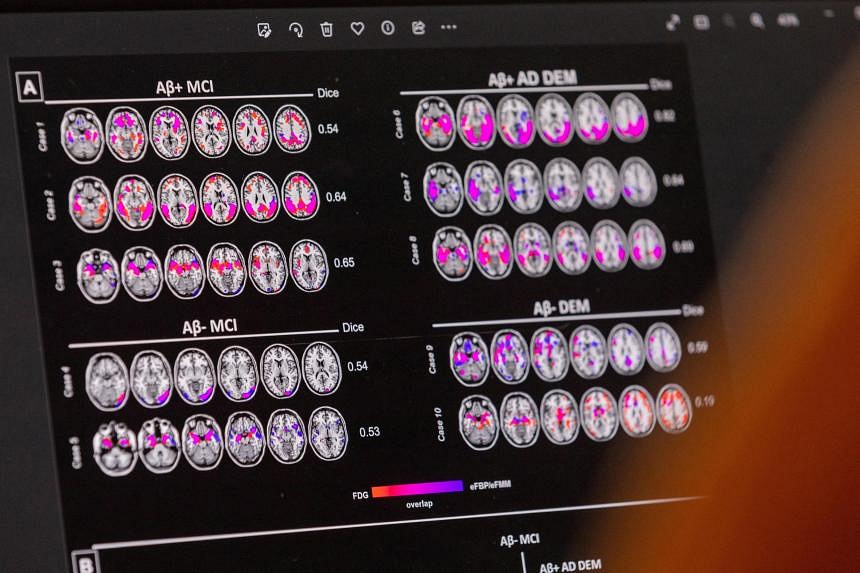New US-approved drug for early-stage Alzheimer’s disease not yet available here
SINGAPORE – The United States earlier in July became the first country to approve a new drug called lecanemab, which has shown it can slow the progression of Alzheimer’s disease.
The US approval for the drug has some experts happy and others concerned.
Some neurologists hail lecanemab as it is the first drug capable of slowing the disease, giving patients more good years. Others point to the drug’s small gains – it slows but does not even halve the progression of the disease – against its potential risks, including death. Studies showed it slowed the progression of the disease by 27 per cent over 18 months.
Lecanemab has yet to be approved for use here but the Health Sciences Authority (HSA), which regulates medical drugs and equipment, said doctors who want to use it for their patients can bring it in on a named patient basis.
“Where there is an unmet medical need, clinicians may exercise professional judgment and apply to the HSA via the special access route to bring in an unregistered therapeutic product for use on patients under their care, if clinically justified,” HSA said.
It added that it has already approved two applications by clinicians to bring the drug in via this route.
Lecanemab, which costs about US$26,500 (S$35,000) a year in the US, and is administered as an intravenous infusion every fortnight, carries a “black box” warning highlighting the major risks. It should not be used by patients on blood thinners, have clotting disorders, strokes or seizures.
Associate Professor Adeline Ng, a senior neurologist at the National Neuroscience Institute, calls the drug a “positive step forward in the treatment of dementia”, as current treatments are able to treat only the symptoms such as language difficulties, sleep disturbances or poor attention.
She said: “Lecanemab removes beta-amyloid plaques from the brain, and this has been shown to reduce cognitive decline in people with mild cognitive impairment (pre-dementia) or in early stages (of) Alzheimer’s disease with mild symptoms.”
Beta-amyloid plaques, she explained, are a hallmark of Alzheimer’s disease. They are tangles of protein that form at the junction of nerve cells, thereby disrupting the flow of information in the brain.
Most dementia patients here are diagnosed at age 65 years and older, with three out of five suffering from Alzheimer’s, one of several forms of dementia. Other forms include vascular dementia and frontotemporal dementia.
Lecanemab is effective only for those with Alzheimer’s.
An estimated 80,000 people here have dementia, with the number expected to increase to 100,000 by 2030. Aside from memory loss, dementia can cause personality changes, poor time management and language problems.
Prof Ng added: “It is a chronic condition that gets worse over time, increasingly affecting a person’s ability to think and function, resulting in loss of independence until they are fully dependent on care.”
No Byline Policy
Editorial Guidelines
Corrections Policy
Source
